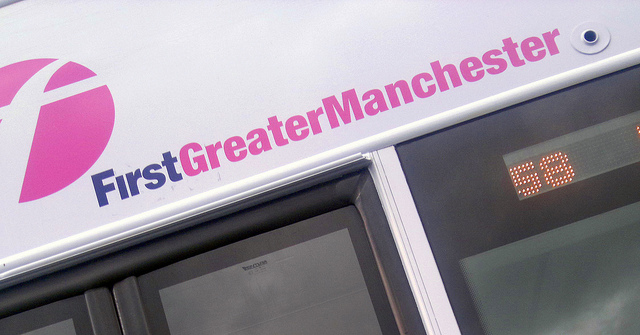The Greater Manchester mayoralty is beginning to take shape, but there are still issues to be ironed out
Greater Manchester this week becomes the first combined metro area to have its own mayor – a decision from central government which has been met with much controversy. Tony Lloyd, the former Labour MP turned Police and Crime Commissioner has been chosen as the first interim mayor until elections can be organised. Professor Francesca Gains looks ahead at what might await him.

Credit: The Laird of Olham, CC BY 2.0
Arrangements to deliver an elected metro mayor for Greater Manchester take several significant steps forward this week. In the House of Lords, the Cities and Local Government Devolution Bill moves into its committee stages. The bill sets out the legislative changes needed to allow the election of directly elected mayors in metropolitan areas to oversee skills and economic development, transport, planning and policing.
Debates in the House of Lords over the next few days will examine key provisions with a line-by-line scrutiny of plans for how metro mayors will be elected, funded, what powers they can exercise and how they can be held to account. Some will argue that other metropolitan areas should be allowed to get the same kind of devolved funds as Greater Manchester without having an elected mayor.
However, the Chancellor looks unlikely to agree the kind of deal agreed with Greater Manchester elsewhere without the accountability of a directly elected mayor. In his first speech after the election, Osborne stressed he ‘would not settle for anything less’. So as debate over the English devolution agenda continues inParliament and around the English regions, all eyes will be on Greater Manchester to see how plans for a metro mayor progress.
And in Greater Manchester Tony Lloyd, currently the region’s elected Police and Crime Commissioner, assumes a new role as the area’s ‘interim metro mayor’ at the end of June. Appointed by the Greater Manchester Combined Authority’s ten local authority leaders, Tony Lloyd will head the region’s combined authority and oversee preparations for the election of the directly elected mayor in 2017.
Despite the widespread and long-standing political appetite locally to seize the opportunity to take decisions on how to boost economic development and social improvement in the region, there are some significant challenges for the interim mayor in the coming months.
There will be concern that these economic and social goals will be challenged by the Chancellor’s deficit reduction plans. Public spending cuts will fall most significantly on the budgets of the ‘unprotected’ departments, including the Department for Communities and Local Government, the Department for Business Innovation and Skills and the Department for Transport. Analysis by the Institute for Fiscal Studies suggests that the Budget Statement on the 8th July could imply cuts in local government spending approaching 40% over the next three years.
The interim arrangements for devolution in Greater Manchester included plans to devolve funding for skills training, work programmes, employment support, the Housing Investment Fund and ‘earn back’ arrangements to permit significant improvements in local transport. Early agreement, and release of these funds, will be crucial to capitalise on local knowledge and partnerships to fan the flames of economic recovery and job stimulation in the region.
The interim mayor has to champion the region, and the idea of devolved powers, without having the budgets and powers fully in place. In the face of welfare cuts, cuts in adult social care and other non-protected spending areas locally, early visible signs of economic and infrastructural benefits of the devolution agenda will be important to demonstrate to the public the potential benefit of devolution ahead of the full devolution of powers and election of the mayor proper in 2017.
The interim mayor will also have some organisational and governance issues to address. There is no appetite for the creation of a large bureaucracy to support the interim mayor (and after 2017 the elected mayor). But a skilled policy capacity will be needed on economic and transport issues and to ensure equality and diversity considerations are properly addressed. Both the interim arrangements and the Cities and Local Government Devolution Bill demand proper evaluation and impact assessment of the new arrangements.
Likewise, ensuring proper and robust arrangements for scrutiny of the increasingly significant and complicated commissioning and spending decisions taken in the region under devolved arrangements requires both bureaucratic and political resources.
And the need to ensure transparency of the decision-making process and to encourage democratic engagement of the public in meaningful ways with decision-making requires both administrative and political capacity. In these governance aspects Tony Lloyd’s experience as Police and Crime Commissioner will be incredibly valuable in getting the governance structures right.
Finally there is the issue of who deputises for the mayor? As the unfortunate early death of West Midlands PCC Bob Jones showed, proper succession arrangements need to be in place when authority is vested in one individual. Clause 2 of the bill and the Greater Manchester interim arrangements both set out that a deputy be appointed from one of the ten leaders of the combined authorities who will act as the mayor’s cabinet.
However, this kind of arrangement could serve to further entrench the lack of diversity in the Greater Manchester cabinet. Only one of the ten local authority leaders in Greater Manchester is female. The mayor’s cabinet already looks very old fashioned compared to other executive bodies, such as the UK Cabinet. Allowing the election of a deputy mayor on a joint ticket would allow the political parties to offer a gender balanced ticket and this could go some way towards countering the ‘male and pale’ aspect of the Greater Manchester arrangements.
So as the Cities and Local Government Devolution Bill continues its parliamentary stages to reach the statute book – and the other city regions do the political calculations about the potential and price of devolution in terms of accepting an elected mayor – Greater Manchester and the interim ‘metro mayor’ Tony Lloyd will continue to be in the national spotlight and at the centre of debates about English devolution.
—
Note: This article originally appeared on Manchester University’s Policy Blogs site and is reposted with permission. It represents the views of the author and not those of Democratic Audit or the LSE. Please read our comments policy before posting.
—
 Francesca Gains is Professor of Public Policy in the School of Social Sciences, University of Manchester. Her research has examined the pathways to political representation taken by politicians from underrepresented groups and the development of gender equality policies under New Labour and Conservative Governments. Follow her on Twitter at @FrancescaGains
Francesca Gains is Professor of Public Policy in the School of Social Sciences, University of Manchester. Her research has examined the pathways to political representation taken by politicians from underrepresented groups and the development of gender equality policies under New Labour and Conservative Governments. Follow her on Twitter at @FrancescaGains





 Democratic Audit's core funding is provided by the Joseph Rowntree Charitable Trust. Additional funding is provided by the London School of Economics.
Democratic Audit's core funding is provided by the Joseph Rowntree Charitable Trust. Additional funding is provided by the London School of Economics.
“The Greater Manchester mayoralty is beginning to take shape, but there are still issues…” https://t.co/C43g17lqDT @democraticaudit
The @democraticaudit blog today, written by @FrancescaGains, examines Greater Manchester’s forthcoming mayoralty: https://t.co/nCrLHxdkoo
The Greater Manchester mayoralty is beginning to take shape, but there are still issues to be ironed out https://t.co/NsZGnYEScM
The Greater Manchester mayoralty starts to take shape https://t.co/IgMV1Y3yDX https://t.co/jYiNt1jaOG
The Greater Manchester mayoralty is beginning to take shape, but there are still issues to be ironed out https://t.co/pbNDezGPDB #Option2S…
The Greater Manchester mayoralty is beginning to take shape, but there are still issues to… https://t.co/A1TA3c3100 https://t.co/khhz7PFPdR